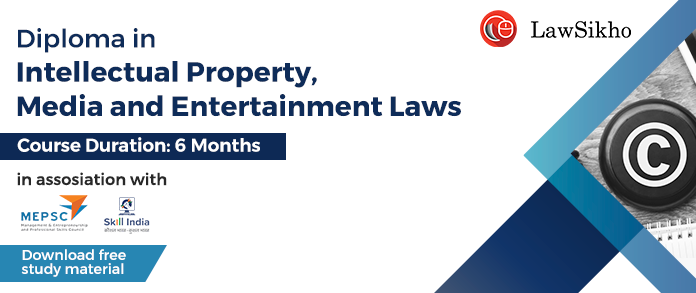This article is written by Sabaat Fatima, from HILSR, School of Law, Jamia Hamdard. In this article, we will be looking at the famous copyright infringement of the movie Zanjeer along with some other cases of infringement in Bollywood.
Table of Contents
Introduction
TV, film, radio, music, press, publishing, advertising, and even the internet are regulated by various statutory and non-statutory bodies. Whereas, Article 19(1)(a) of the Indian Constitution widens the scope of the media by guaranteeing freedom of speech and expression yet the Press And Registration Of Books Act, 1867; the Cable Television (Regulation) Act, 1995; the Copyright Act, 1957; and even the Indian Penal Code lays down certain restrictions on the media industry.
The media and entertainment industry relies upon ‘creativity’ and always comes up with something new. Due to this, it is necessary to protect such content from being copied. Here, the copyright is essentially important. Copyright is a form of intellectual property i.e., intangible property. Intellectual property is a creation that is derived by the application of mind such as art, inventions, literary work, designs, symbols, etc. For example, a physical property like a piece of land can be protected from trespassers by using different means of security, but what happens if I write a movie script or song lyrics, which was the creation of my own ‘intellect’ and I want to protect it from others copying it. In such cases, Copyright laws help in protecting such works.
The producers of movies or legally speaking “cinematograph films” are the proprietor of the movie, intellectual property and subsequently has the right to decide whether he wants to allow others to replicate, translate, remake, copy, or adjust his intellectual property. He also can take legitimate action against anyone who, without his authorization, attempts to use, reproduce, translate, remake, copy or adjust his movie.
Although we have laws in India to protect copyright issues, copying others’ work is still predominant, particularly in the Bollywood industry. Bollywood has confronted many accusations relating to copying stories of other movies be it the South Indian movie industry or the Hollywood industry. The legendary song, ‘Mehbooba Mehbooba’ from the movie Sholay is copied from Demis Roussos’s song Say You Love Me and David Dhawan’s Movie ‘Partner’, is a copy of Hitch and the title song of the movie ‘Dhoom’ is a copied version of an Arabic song ‘Enta Ma Oltesh’ and there are many more examples.
The Indian film industry has raised a surge of incidents of copying encroachment with the latest trend of recreating songs and movies. The most recent incident being the release of Masakali 2.0, a song that has been recreated and composed by Tanishq Bagchi without the assent of its original owners. Its original version, Masakali, screened in the film Delhi-6 in 2009 was produced and composed by Mr A.R. Rahman and written by Mr Prasoon Joshi. Notwithstanding the existence of a copyright statute in India and the country is a part of various international treaties and conventions related to intellectual property rights, the enforcement mechanism for the same is very poor. This failure to protect gives a free hand to producers to openly violate copyrights in the Indian film industry.
Meaning of copyright
During the reign of the East India Company, the British enacted the copyright law in India i.e., the Indian Copyright Act, 1847 for the enforcement of English copyright rules in India. This law was later repealed and was replaced by the Copyright Act, 1911 which was applied to all British colonies including India. It was then modified by the Indian Copyright Act, 1914 that remained applicable in India until it was replaced by the parliament of sovereign India by the Copyright Act, 1957.
Copyright is a form of the intellectual property giving its owners absolute rights to reproduce, publish, sell, or distribute an artistic work. Copyright identifies with literary and artistic creations, such as music, paintings, films, books, sculptures, and technology-based works (such as computer programs and electronic databases). In specific languages, copyright is alluded to as author’s rights. In India, the copyright for dramatic, artistic, literary, and musical works remains for sixty years after the author’s death, while the copyright for cinematographic films, photographs, and sound recordings persists for sixty years. Unapproved reproduction, importation, or distribution either whole or of a considerable piece of the work protected by copyright is called copyright infringement.
Section 51 of the Copyright Act, 1957 deals with the violation of copyrights. However, all unapproved utilization of copyrighted works is not an infringement as specific acts are not viewed as an infringement of copyright. They are treated as reasonable dealings of copyright work, like private and individual use, analysis or audit, and reporting of recent events and current affairs. Section 13 of the Copyright Act 1957, protects expressions of ideas as opposed to ideas themselves. It protects literary works, musical works, cinematograph films, dramatic works, artistic works, and sound recording. For example, architecture is protected under the Act as artistic works. Section 14 of the Act vests exclusive rights to the owner of the copyright and as such can be practised exclusively by the copyright owner or by any other person who is aptly licensed in such manner by the owner of the copyright. These rights include the right of reproduction, right of adaptation, right to make translations, right of publications, communication to the public, etc. Section 17 of the Act states that the author or creator of the original work is the first owner of the copyright. An exception to this rule is that in circumstances where the employee creates a work in the period of his employment the employer becomes the owner of the copyright.
Zanjeer (Salim Khan and Another v. Sumeet Prakash Mehra And Others)
“Zanjeer” is a 1973 blockbuster Hindi film, featuring legendary actors Amitabh Bachchan, Jaya Bachchan, Pran, Ajit Khan, and Bindu. There is no doubt that this film was one of the finest dramas ever made. The sequel of this blockbuster hit was written by Salim Khan with the help of Javed Khan and was produced by Prakash Mehra Productions. But, in 2009 Mr Mehra passed away and his rights were passed on to his lawful heir, Puneet Prakash Mehra. The reason for action occurred when Malad (Mumbai) based Box Cinema channel broadcasted the film on March 12, 2020, with no prior consent or license from the producers of the film. Puneet Prakash Mehra, the present copyright holder filed a complaint claiming the violation of copyright at Juhu Police Station on October 7, 2020.
The matter was given over to the Crime Intelligence Unit of Mumbai Police on 1st January. Upon raid, it was found that Raju Khan along with Ghanshyam Suraj Giri willfully apportioned Zanjeer film’s print to the Box Cinema. Sachin Waze, Assistant Police Inspector and his team, took over the Zanjeer copyright infringement matter and observed Prakash Mehra’s fake signature on bogus purchase and sale agreement had been used to show as copyright over the film by these accused who are main agents. This has been going on since 1998. Strangely, the owner of Box Cinema was at that point in receipt of an anticipatory bail preceding the Crime Intelligence Unit’s raid. The current dispute will be probed by the Mumbai Police Crime Branch. A clear picture can be anticipated just when the forged documents are investigated and the presumed ones are interrogated.
The Plaintiffs argued that they were the authors of the original Zanjeer and this literary work was never authorized by Prakash Mehra, it was in existence even before Prakash Mehra had proposed the Plaintiffs for the same. Additionally, Prakash Mehra was allowed one-time authorization to make the said film in 1973. Subsequently, Prakash Mehra’s rights were restricted distinctly to the movie “Zanjeer” made in the year 1973 and did not stretch out to the underlying literary work since there was no approval from the plaintiffs to this effect. Based on the literary work, the right to remake a cinematographic film in any language in the absence of any agreement under Section 18 and Section 19 of the Copyright Act continues to be with the plaintiffs and the defendants cannot remake the film without the written consent of the plaintiffs.
The Plaintiffs had also argued that they had approved the “remake rights” of the literary work concerning all South Indian languages for Mr. S.V.S Manian. An affidavit was produced by the plaintiffs of the wife of Shri S.V.S Manian dated December 31st, 2012, affirming that her husband had bought the story rights of the Hindi film “Zanjeer” from the plaintiffs for a time of 25 years for the making of the Tamil film “Sirithu Vazha Vendum”. Nonetheless, no written permit was produced. The court excused the affidavit and left its legitimacy to be checked at the phase of interrogation.
In any case, the Court concluded that Prakash Mehra had charged the work from the plaintiffs for a consideration of Rs. 55, 000 each and was subsequently the primary proprietor of the film’s underlying works, which incorporated the literary work. The defining point of the case was the accompanying succession of events:
- Plaintiff No.1 narrated the “story idea” of “Zanjeer” to Dharmendra;
- Dharmendra paid consideration for that story, even though it will involve proof whether the instalment was to purchase the story (as expressed by plaintiff No.1 in his interview to ETC organization) or as token gift money as claimed in the reply of the plaintiff No. 1;
- Dharmendra narrated the story to Prakash Mehra and requested that he take script from the plaintiffs based on the said story;
- Dharmendra at that point charged the plaintiffs to compose a script in the interest of Prakash Mehra based on the said story.
A few interviews of Prakash Mehra and Salim Khan were examined and the court discovered clear statements that showed that the script had been purchased by Dharmendra and later by Prakash Mehra from Salim Khan and it was not an instance of simple licensing. The evaluation order of the significant year alongside the profit and loss account and the separation of the expenses of the film were also produced where it was shown that Rs. 55,000 was paid to each author as consideration for ‘script and screenplay’. The court ignored a letter composed by Dharmendra that the plaintiffs produced to prove that the script was not purchased on the grounds that the letter was created at an extremely late stage.
Based on these facts and based on the decision in the IPRS case, the court reached a prima facie conclusion that it is the maker for example Prakash Mehra who turned into the primary proprietor of the copyright in the fundamental work (the script) and subsequently had a right to remake the same (this right now vests with his heirs (the Defendants). Additionally, the court tracked down that the plaintiffs had unduly delayed in carrying the case to court. They were firmly connected with the film industry and accordingly could not take the plea that they did not know that the defendants were in the process of remaking Zanjeer, which was broadly publicized.
In the current case, the plaintiffs have delayed issuing legal notice and the filing of the suit against the defendants; however, they have declared that an amount of Rs. 6 crores would be reasonable monetary compensation. The plaintiffs are therefore not qualified for a mandatory injunction as looked for regardless of whether this Court would have arrived at the conclusion that the plaintiffs are the proprietors of the copyright as affirmed since the plaintiffs’ case falls inside the provisions of Section 38(3)(c) and not under Section 38(3)b) of the Specific Relief Act, 1963. Thusly, as expressed earlier, the plaintiffs are not qualified for a mandatory injunction regardless of whether this Court was to continue on the basis that the plaintiffs have made out a prima facie case that they are the proprietors of the copyright in the fundamental artistic work in regard of the film “Zanjeer” which was released in 1973.
Conclusion
There has likewise been a situation where a copied movie was embraced by the first producers. Something like this happened in ‘Bang Bang’ featuring Hrithik Roshan and Katrina Kaif, produced by Fox Star Studios, is a Hindi version of ‘Knight and Day’ starring Tom Cruise and Cameron Diaz, with just about a Hindi adaptation of all plot, scenes, punchlines, timings and so forth.
There is an insignificant list of such films, ‘Hitch’ into ‘Partner’, ‘What Lies Beneath’ into ‘Raaz’, ‘Phone Booth’ into ‘Knock out’, ‘Knight & Day’ into ‘Bang Bang’, ‘Nine Months’ into ‘Salaam Namaste’, ‘My Cousin Vinny’ into ‘Banda Yeh Bindas Hai’, ‘Ocean Trilogy’ into ‘Happy New Year’, ‘Reservoir Dogs’ into ‘Kaante’ and so on.
The line must be drawn between taking inspiration and really infringing other’s rights, which Bollywood has practically neglected. The milestone judgment of R.G. Anand states the test to decide whether a work is just an inspiration from others or completely copied. The Supreme Court said that an individual with common memory subsequent to watching or reading work can recognize the original and copied work.
The copyright law is considered as a fundamental law of security for a country since it advances its natural cultural heritage. Notwithstanding, the higher the degree of protection given to artistic, dramatic, musical or literary work in any country, naturally higher is the number of clever creations, i.e., higher its prestige. Accordingly, in the last analysis, we can say that it is the essential prerequisite for monetary, social, and social development.
References
LawSikho has created a telegram group for exchanging legal knowledge, referrals, and various opportunities. You can click on this link and join:
https://t.me/joinchat/J_0YrBa4IBSHdpuTfQO_sA
Follow us on Instagram and subscribe to our YouTube channel for more amazing legal content.
 Serato DJ Crack 2025Serato DJ PRO Crack
Serato DJ Crack 2025Serato DJ PRO Crack











 Allow notifications
Allow notifications


